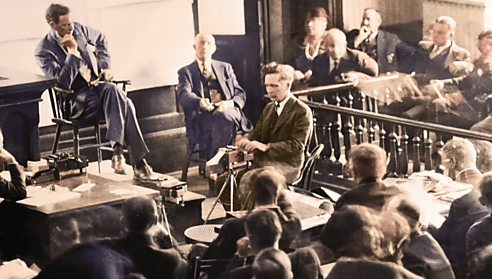Overview
This lesson will provide students an opportunity to consider the role of media and public opinion in criminal procedure. They will learn about the significance of the Lindbergh case in setting precedent for media coverage of court cases and apply that knowledge to evaluate the evolution of the role of media and public opinion in modern court cases.

